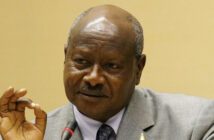In an effort to increase the dwindling government revenues as a result of the falling oil prices, the federal government recently launched Voluntary Assets and Income Declaration Scheme (VAIDS) to shore up its revenue base. Under the scheme, anyone who voluntarily declares and discloses previously untaxed assets or income will avoid the usual penalties and interest charges and will not be prosecuted.
The tax receipt for the government has been paltry as 12.5 million people out of a 50 million workforce in the country are paying tax. The governor of Lagos, Akinwunmi Ambode raised alarm few days ago that 600,000 out of the 17 million people residing in the state pays their tax.
In 2016, the federal government received $20 billion in taxes which is 6% of the GDP. Nigeria’s tax-to-GDP ratio is one of the lowest in the world. More shocking is the fact that 214 people pay more than N20 million in annual taxes.
The VAIDS includes all taxable entities – companies and people, both home and abroad – and all relevant taxes. Notably, the program is in two phases. The first, to 31st December 2017, is the lenient phase as repentant evaders will receive complete immunity from prosecution and audit, avoid interest (usually 21% per annum), and penalties which can be as soft as 10% of the undisclosed amount and as severe as mandatory forfeiture of the asset. The second phase runs from the end of 2017 to March 2018 and under the principle of “less forgiveness for those who delay”, you will be liable for interest on overdue tax balances.
Nigeria is not the first country to implement VAIDS as several countries has done so before us. Indonesia was able to register $350 billion undeclared assets by the time its tax amnesty period ended in March 2017. From this, the government collected just under $10 billion, less than its target of $12.5 billion.
Argentina announced that citizens had declared $117 billion in undisclosed assets, bringing in nearly $10 billion in extra government revenue. In India, 350,000 people were added to the tax net as the scheme raked in over $1 billion.
Nigeria can surely emulate and replicate these success stories but the government need to demonstrate more accountability, prudency, transparency and openness in the management of the nation’s resources. The receipts from this programmes must be used to expand our social infrastructure, health, education, etc. And not to be expended on salaries or frivolous whimsies of the Executive and the legislative arm




